It can be difficult to wrap your arms around the intricacies of digital marketing. Many times, people default to what they know and understand — appearance. Your insurance website can look great, but it still may not do the job. Don’t just check the box. Your website is the gateway to your business. Many times, it’s going to determine who takes the next step, and you want to make sure you can be easily discovered by people who know you by name and those searching for solutions.
Table of Contents
For retail insurance brokers and MGAs, a well-built insurance website isn’t just about aesthetics; it’s about credibility, generating leads, and staying competitive. Whether you’re focused locally or operate across multiple states, the strength of your website is crucial.
1. Local Reach: The Three Essential Elements
For local agents targeting clients in a single town and a few neighboring towns, visibility in the local market is key. Building a strong local presence requires three foundational elements:
- Well-Optimized Website: Your site should be user-friendly, clear, and focused on your unique insurance offerings. It should include essential information such as services, contact details, and location-based keywords that reflect your area of operation.
- Local SEO: Optimize for local search terms like “home insurance in [town]” or “auto insurance near [location].” Tailor each page on your site, especially your homepage, to the specific areas you serve.
- Google My Business (GMB) Profile: Claim and maintain your GMB page to boost your local search presence, especially on mobile. Include up-to-date contact information, address, and business hours, and use regular updates and customer reviews to strengthen your local SEO.
2. Expanding Reach: Regional and Multi-State SEO Strategies
If your agency or MGA covers a broader geographic area — such as multiple counties, an entire state, or even multiple states — you’ll need a more comprehensive strategy to reach your audience effectively.
- Content Creation & Blogging: Establish yourself as a resource by creating blog posts on relevant insurance topics and trends, targeting regional or national keywords. Frequent, relevant content increases your chances of ranking for broader search terms.
- Industry-Specific Pages: If you target specific industries, including a page showcasing your expertise is beneficial. This helps you rank as an industry-specific insurance solution and builds trust with clients looking for specialized coverage.
- Link-Building Program: Backlinks from reputable websites indicate that your content is valuable, boosting your search rankings. Consider partnerships with local businesses or regional organizations, guest posting, and listing your site in trusted directories.
- ADA Accessibility: As your reach grows, ensure your site is accessible to all, including those with disabilities. ADA-compliant features like screen reader support and closed captions make your site inclusive, boost your reputation, and keep you legally compliant.
3. Keep Your Insurance Website Fresh: The Importance of Regular Updates
Websites are not one-time investments. Refreshing your site every two to five years keeps you competitive and up-to-date with user expectations. Regular updates provide key benefits:
- Enhanced User Experience: Improved navigation, clear page layouts, and effective calls to action (CTAs) enhance user experience, encouraging visitors to stay longer and engage with your content.
- Updated Content: Outdated content can hurt your brand. Regularly refresh your services, industry insights, and other content to maintain relevance and authority.
- Improved Speed and Performance: Fast load times are essential for both user experience and SEO. Search engines prioritize fast sites, and users are more likely to engage with a responsive, quick-loading site.
- Increased Security: With cyber threats on the rise, regular updates protect your site from potential breaches, helping to build trust with your clients.
- Mobile Responsiveness: With the increase in mobile searches, a responsive website is essential. Ensuring your site looks and functions well on all devices can improve both your SEO rankings and accessibility.
In conclusion, retail insurance brokers and MGAs greatly benefit from an insurance website tailored to their geographic reach and audience needs. A well-optimized website, strengthened by local SEO and consistent content updates, establishes credibility and improves visibility, while ADA accessibility ensures inclusivity. Routine refreshes keep your site relevant and adaptable to the ever-changing digital landscape, ensuring your website is more than just a digital checkbox.
